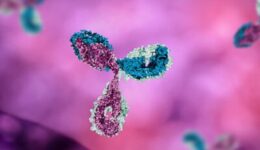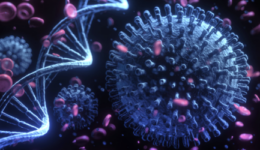The National Cancer Institute at the National Institute of Health is sponsoring LSI’s work on bioinspired nanovectors that manufacture CAR T cells with CRISPR/Cas9-mediated insertion, which will lead to a non-viral transfection system to achieve rapid and cost-efficient CAR T cell manufacturing.
Summary | Adoptive cell therapy using patient-specific T cells engineered with chimeric antigen receptors (CARs) presents a promising treatment modality for cancer patients. However, FDA-approved CAR T cells are genetically engineered by viral transduction, a process that poses limitations for manufacturing and in vivo translation. Viral production is prohibitively expensive and is a main driver of the high price of CAR T cell therapy ($350–450K per treatment). Additionally, batch production of viral vectors requires a minimum 4+ week lead time. This long duration in therapeutic cell manufacturing can delay treatments for patients with progressive diseases. Moreover, due to safety concerns associated with viral transduction (e.g., insertional mutagenesis), the FDA regulates the number of integrated viral vectors per T cell to 5 copies, which limits the number of viral particles used for transduction and results in low transduction efficiencies. These issues are a barrier to optimization of CAR design, expanding clinical applications, and broad patient access to CAR T cell therapies. Therefore, the overall goal of this proposal is to develop a new non-viral transfection system to achieve rapid and cost-efficient CAR T cell manufacturing. This system consists of bioinspired nanovectors that mimics the biological activity of endogenous serum proteins to enhance CAR transgene delivery to primary T cells. Preliminary data supporting this proposal demonstrates that the bioinspired nanovectors were internalized by activated T cells more efficiently than conventional nanoparticle formulations, such as liposomes. The bioinspired nanocarriers therefore overcome the low endocytic capability of primary T cells, a delivery barrier faced by other nanoparticle- based transfection reagents. To achieve persistent CAR expression, this system will use CRISPR/Cas 9 for site- specific CAR insertion into the T cell genome, which mitigates safety concerns resulting from virus-induced random insertions. This proposal will also leverage high-throughput, scalable microfluidic reactors to accelerate the nanocarrier optimization at the exploratory phase and allow future clinical translation of the proposed non- viral transfection system for CAR T cell manufacturing. The specific aims of this proposal are to (1) optimize bioinspired nanovectors for non-viral CAR T cell manufacturing, and to (2) benchmark anticancer efficacy of the non-virally transfected CAR T cells against virally transduced counterparts. Successful completion of this project will lead to a new CAR T cell manufacturing process that accelerates CAR T cell development for clinical translation, facilitates compliance with regulations, and reduces the manufacturing costs and lead times to democratize CAR T cell therapy.


